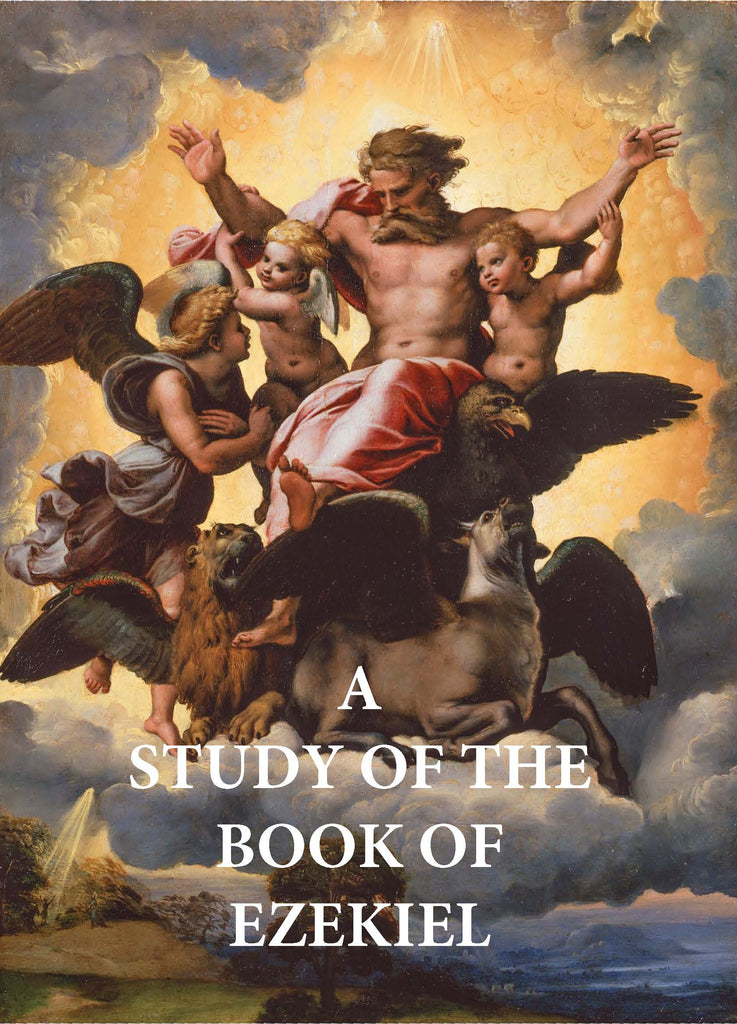
A Study of The Book of Ezekiel
$ 4.99 $ 10.00
Ezekiel was a priest of the order of Zadok; he was the son of Buzi. He was in the group of Israelites taken captive to Babylon in 597 BC. His ministry started in 593BC when he was 30 years old. Traditionally temple priests were consecrated at the age of 30. As his ministry began, he was among the captives by the River Chebar, and there he experienced a theophany, visions of God as the heavens opened to him. Thus, Ezekiel’s ministry began when he had been a captive in Babylon for nearly six years.
The prophets Daniel and Jeremiah were contemporaries of Ezekiel in that they prophesied during the captivity. Jeremiah was in Jerusalem while Daniel and Ezekiel had been carried captive to Babylon. It is interesting to note the pictorial of God presented in the prophets Isaiah, Jeremiah, and Ezekiel. Isaiah was characterized as God the Son, Jeremiah as God the Father, and Ezekiel as God the Spirit. The Book of Ezekiel is concerned with extolling the holiness of God. Juxtaposing the Book of Ezekiel with the Book of Revelation establishes a marked similarity between the two. Prophetic Symbolism and Imagery are used intensively throughout Revelation and Ezekiel. The name Ezekiel means God’s strength, which is appropriate for Ezekiel could not accomplish all he did without God’s strength. This premise holds for all Christians, for we all must have God’s power.
After the first and second captives were taken to Babylon, the inhabitants of Jerusalem still defied the prophets and stayed in Jerusalem. The false prophets of Jerusalem preached incessantly that Jerusalem would survive the assaults of Nebuchadnezzar. Further, they were not to leave The Promised Land. It is here that the world was to come for salvation; YAHWEH chose to reveal Himself to the world via God’s Law through the Hebrew people. The Hebrews knew God gave them The Promised Land for this purpose; they were reluctant to leave. The preaching of the false prophets exacerbated the Hebrews' motivation to stay in The Promised Land. Nevertheless, Jeremiah and Ezekiel continuously preached that the Hebrews were to willing leave Jerusalem, go to Babylon, serve Nebuchadnezzar and raise families in Babylon. This message was highly unpopular with the Hebrews creating animosity between (Jeremiah, Ezekiel) and the Hebrews.
The Canon of scripture is not complete without all 66 books. Each book was written for a purpose; it is part of God’s ordained predestinated will. Ezekiel is apocalyptic for it details future apocalyptic events, as does the Book of Daniel and The Book of Revelation. Each book details future apocalyptic events, which, when studied together, the student is blessed with knowledge, knowledge of God’s ultimate plan of redemption for the lost. Each book proclaims the holiness of God and that there is none other save God. Jesus is revealed in each of the books, and the premise there is no salvation without the Blood of Jesus Christ is constant. We are made acutely aware of the holiness of God, of His wrath and His mercy.